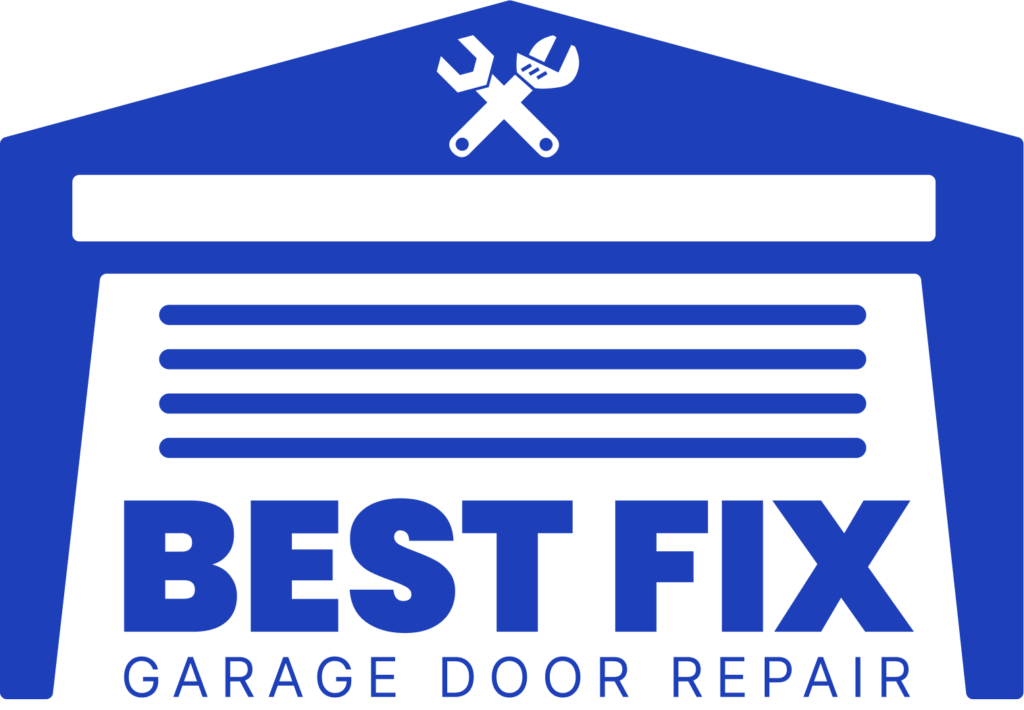Table of Contents
- <strong>Introduction</strong>
- <b>Unusual Noises During Operation</b>
- <b>Door Moves Unevenly or Jerks</b>
- <b>Door Doesn’t Fully Open or Close</b>
- <b>Garage Door Responds Slowly</b>
- <b>Visible Sagging or Warping</b>
- <b>High Energy Bills or Drafts in the Garage</b>
- <b>Remote or Wall Switch Doesn’t Work Properly</b>
- <b>Door Reverses Immediately After Closing</b>
- <b>Broken or Worn-Out Springs</b>
- <b>Vibration or Shaking During Movement</b>
- <b>The Door Has Fallen Off Track</b>
- <b>It’s Been Over a Year Since the Last Maintenance</b>
- <b>When in Doubt, Call the Experts?</b>
- <b>Conclusion</b>
Introduction
A garage door is more than just an entryway—it’s a key part of your home’s security, insulation, and convenience. Whether you use it multiple times a day or occasionally, your garage door endures wear and tear over time. But how do you really know when it’s time to call a professional for repair? While minor issues might seem manageable on your own, there are several signs that indicate your garage door needs expert attention. In this article, we’ll dive deep into the most common indicators, why they matter, and how professional garage door repair company san antonio can save you time, money, and safety hazards.
Unusual Noises During Operation
One of the first signs homeowners notice is unusual noise when opening or closing the garage door. Normally, a garage door should operate smoothly and relatively quietly, especially if it has been properly maintained. If you start hearing grinding, screeching, banging, or popping sounds, it often indicates a mechanical problem. These noises may come from loose hardware, worn rollers, unbalanced springs, or misaligned tracks.
What’s tricky is that the noise may seem minor at first, but over time it can signify a deeper problem that could worsen. Continuing to use the garage door while it’s making these sounds may lead to more expensive repairs in the future. A professional technician can quickly pinpoint the source of the noise and fix it before it causes larger mechanical failures.
Door Moves Unevenly or Jerks
Another red flag that you shouldn’t ignore is when the garage door moves unevenly, jerks as it rises or lowers, or appears crooked. This is often caused by an imbalance in the spring system, a misaligned track, or damaged rollers. Springs play a crucial role in balancing the door’s weight, and when one side fails, it puts more strain on the entire mechanism.
This uneven movement not only disrupts your convenience but also poses a serious safety risk. If the imbalance becomes too great, the door could fall unexpectedly, which is especially dangerous if children or pets are nearby. A trained garage door technician can identify whether the problem lies with the springs, cables, rollers, or other components and make the necessary repairs safely.
Door Doesn’t Fully Open or Close
If your garage door no longer opens or closes all the way, that’s a clear sign something isn’t right. In some cases, the issue may be as simple as a sensor obstruction or misalignment. But if cleaning the sensors or removing debris doesn’t solve the problem, it’s time to call in a pro.
Partial opening or closing can also stem from worn springs, broken cables, or even issues with your garage door opener. Sometimes, the opener may struggle to lift the door due to increased weight from a damaged spring or warped panel. In such cases, continuing to operate the door could cause the motor to burn out, resulting in an even costlier repair or full replacement. A technician can diagnose the issue and ensure the door returns to its full range of motion.
Garage Door Responds Slowly
A delay in response when you press your remote or wall switch might point to a problem either with the door opener or the door itself. If your garage door takes more than a couple of seconds to start moving after the signal, it might be suffering from a range of issues—low batteries, circuit board damage, remote signal interference, or worn mechanical parts.
Slow response times not only reduce your convenience but also make your garage vulnerable. For example, a door that doesn’t close immediately might stay open long enough for pests or intruders to enter. Having a technician inspect your opener and door mechanism ensures all parts are in sync and functioning quickly and securely.
Visible Sagging or Warping
A properly maintained garage door should sit evenly when closed and remain straight as it moves. If you notice any sagging sections, especially with wooden doors, or if it appears warped from one side, these are visual cues of structural problems.
Sagging often results from worn tension springs, deteriorating panels, or weather damage. These issues worsen over time, especially during seasonal changes when materials expand and contract. Professional technicians have the tools and experience to assess whether the door can be realigned or if replacement panels are needed. Ignoring structural damage could eventually lead to the door becoming inoperable.
High Energy Bills or Drafts in the Garage
Your garage door also plays a role in your home’s energy efficiency. If you notice a sudden spike in your heating or cooling bills or feel air drafts in the garage even when the door is closed, your garage door insulation may be compromised.
Seals, weather stripping, or insulated panels could be damaged or deteriorated. These small components might not seem like a big deal, but over time they contribute to serious energy loss. A professional repair service can identify the source of drafts and restore proper sealing, helping you reduce utility costs and maintain a comfortable indoor climate.
Remote or Wall Switch Doesn’t Work Properly
If your remote control, keypad, or wall-mounted switch fails intermittently or stops working altogether, you might be facing electrical issues. This can be related to wiring, dead batteries, or a faulty garage door opener.
While some issues like battery replacements are DIY-friendly, other problems may involve complex electronics, wiring problems, or even signal interference from nearby devices. Professional repair technicians are trained to test and replace faulty circuits, receivers, or transmitters without damaging the system.
Door Reverses Immediately After Closing
Garage doors are equipped with safety features like auto-reverse sensors to prevent injury or damage. If your door starts to close and then suddenly reverses without any obstruction in the way, something is likely wrong with the safety system.
This could be due to dirty or misaligned sensors, or an issue with the limit settings of the opener. Continuing to use the door in this state can reduce security and increase the risk of injury. A professional can recalibrate or replace the necessary components, restoring safe operation.
Broken or Worn-Out Springs
One of the most dangerous and common problems with garage doors is broken or worn-out torsion or extension springs. These springs are responsible for carrying the heavy lifting load of the garage door, and when they break, the door becomes very difficult—or impossible—to lift manually or with the opener.
You might hear a loud “bang” when a spring breaks, similar to a firecracker. Attempting to replace garage door springs yourself is extremely risky, as they are under high tension and can cause serious injury if mishandled. A garage door professional has the proper tools and training to safely replace springs and rebalance the door.
Vibration or Shaking During Movement
A garage door should open and close smoothly. If you notice the door shaking or vibrating during operation, it could point to loose components such as rollers, tracks, hinges, or screws. This kind of movement is a warning that something is misaligned or beginning to fail.
Ignoring this kind of symptom can lead to premature wear on the motor and mechanical components. A professional can realign tracks, tighten hardware, and lubricate parts to restore the door’s smooth motion and extend its life.
The Door Has Fallen Off Track
Perhaps the most obvious sign that you need immediate professional help is if your garage door has come off its track. This is a serious issue that should never be handled by a homeowner. Doors that are off-track can collapse or fall, posing an immediate safety threat to anyone nearby.
Whether it’s from a sudden impact, broken cables, or worn-out rollers, an off-track door must be inspected and repaired by a trained technician. They will assess the damage, realign the system, and ensure that the issue doesn’t recur.
It’s Been Over a Year Since the Last Maintenance
Even if your garage door appears to be functioning properly, regular maintenance is essential to prevent costly repairs. If it’s been more than a year since a professional looked at your garage door, it’s a good idea to schedule an inspection.
A routine tune-up can catch early signs of wear, lubricate moving parts, test the balance and force, and ensure your opener is performing as expected. Investing in preventative maintenance often costs far less than dealing with an emergency repair.
When in Doubt, Call the Experts?
While some minor garage door issues can be resolved with simple DIY maintenance, many problems require professional assessment and repair. The garage door is the largest moving object in most homes and contains high-tension components that can cause serious harm if mishandled.
If you’re ever unsure about the nature of the problem or don’t have the right tools or knowledge to fix it safely, it’s always best to call a trusted garage door repair san antonio technician. Not only will they save you time and stress, but they’ll also ensure your door operates safely, efficiently, and for years to come.
Conclusion
Your garage door is a vital part of your home, and its performance affects your security, convenience, and energy efficiency. From strange noises and jerky movements to sagging panels and electrical issues, these signs shouldn’t be ignored. Knowing when to call a professional can prevent small issues from becoming expensive, dangerous problems.
Regular maintenance and timely repairs will extend the life of your garage door and provide peace of mind. So, if you notice any of the signs mentioned above, don’t wait—contact a certified garage door professional and keep your system in top shape.

